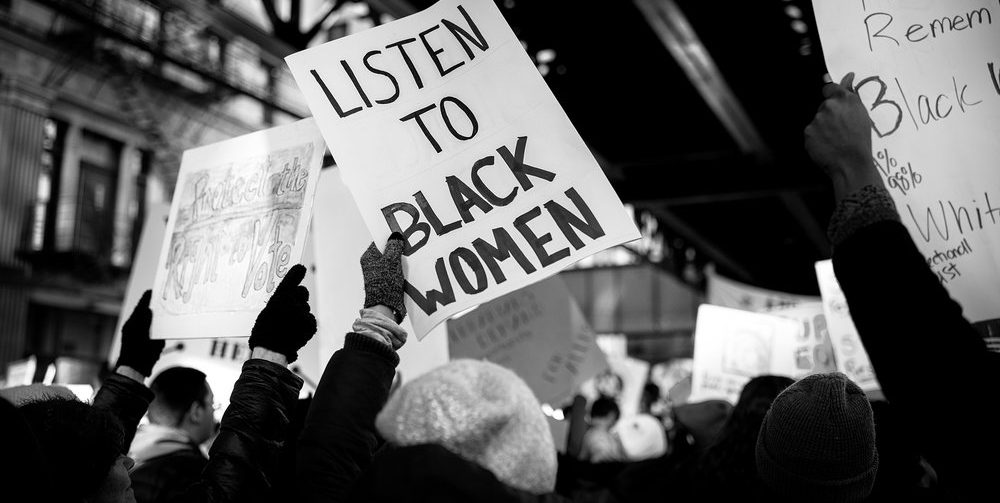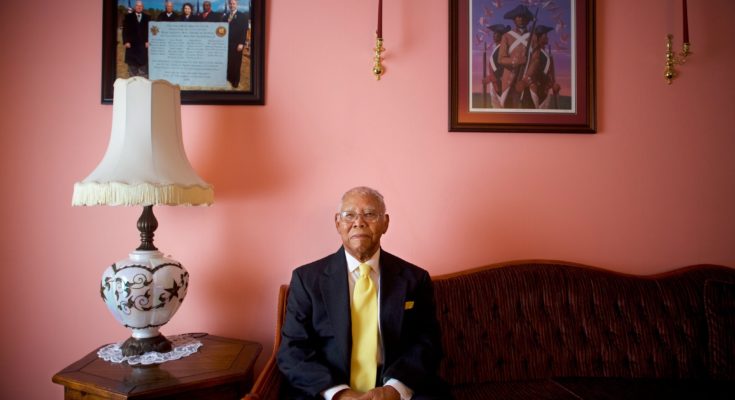We currently live in a very divisive America. But racism is not new to this country, African-Americans face racial bias on a daily basis. So when Marion Lane found a 1942 old picture of her father, John E. James Jr., when he graduated from United States Army’s Officer Candidate School in Fort Benning, GA, she was shocked.
Why was she shocked? Because her father never talk about be service in World War II. He was a commissioned officer when he graduated from the officer school but was sent overseas as a corporal. Now two week before his 98th birthday, the Army made amends.
Justice delayed but now received!
At 98, the Army Just Made Him an Officer: A Tale of Racial Bias in World War II
A reprint from The New York Times written by Rachel L. Swarns.
PHILADELPHIA — Marion Lane discovered the faded photograph after her stepmother died, crammed in a closet with her stepmother’s Sunday dresses. She unrolled it and there was her father, young, handsome and grinning amid a phalanx of soldiers.
She was stunned: “It looked like a graduating class of Army men.”
Her father was a longtime mail carrier who loved his family, fishing and his beloved, gleaming Cadillacs. He never spoke about his service in World War II. On the day she found the photo, he finally told her why.
Her father, John E. James Jr., graduated from the Army’s Officer Candidate School in Fort Benning, Ga., in 1942, but was never allowed to serve as a commissioned officer. Instead, he was shipped overseas as a corporal with an all-black battalion at a time when racial discrimination in the military derailed the dreams and careers of a generation of African-American soldiers.
On Friday, the Army will finally make amends, promoting Mr. James to the rank of second lieutenant, two weeks after his 98th birthday. The ceremony at the Museum of the American Revolution will be attended by a deputy assistant secretary from the Army, a retired four-star general and Senator Bob Casey Jr., the Pennsylvania Democrat who championed the case.
“It’s unbelievable,” said Mr. James, who descends from a long line of military men dating to the Revolutionary War. “I thought it would never happen.”
It almost didn’t. Although she discovered the photo in 2001, Ms. Lane, a retired public school administrator, only learned in 2015 that her father could request a correction to his military record from the Army Review Boards Agency. She enlisted the aid of Senator Casey and his staff.
The campaign took nearly three years. They sent more than a dozen emails and letters, made two appeals and encountered so many dead ends and disappointments that Ms. Lane half-jokingly wondered whether the Army was hoping her father would “kick the bucket” so that no one would have to acknowledge wrongdoing.
But after decades of silence, Mr. James was ready to tell his story. As a young man, he had never met any black officers and he had never seen any either.
But after he was drafted in 1941, he heard that the Army wanted to recruit black officers. He applied and was accepted in 1942 to a class at Fort Benning that included 21 men of color.
He slept in segregated barracks, but for the first time in his life he also ate, trained and studied alongside his white counterparts.
He still remembers joining the jubilant black and white officers-to-be in their march, after they had completed their training in December of that year. They all expected to be promoted the next morning.
The African-American graduates would join the military’s tiny, black elite: Fewer than one percent of black soldiers in the Army were officers in 1942, according to a book published by the Army’s Center of Military History in 2001.
But later that day, Mr. James said, a white officer pulled him aside. Instead of receiving his commission, he was going to be shipped to another post. “I wasn’t going to be getting my bars,” Mr. James said.
Ms. Lane suspects that her father was denied his commission because he would outrank some white officers in the battalion he would be assigned to, and black officers were not supposed to supervise whites. Meanwhile, military records show that options for newly graduated black officers were becoming increasingly scarce.
By the end of 1942, the number of black officers had begun to exceed the number of available assignments, according to a book published by the Army’s Center of Military History in 1963.
Some commanders said they could not house African-Americans who were barred from sharing barracks or mess halls with white officers. Others were more explicit. The Mississippi congressional delegation requested that “no Negro officers be stationed in Mississippi at all,” the study shows.
Mr. James didn’t know why he was denied his promotion, but he said he knew better than to complain.
So he swallowed that injustice and the indignities of racial discrimination and segregation that dogged the rest of his service, including three years as a typist with the 242nd Quartermaster Battalion, which supplied the front lines in some of the fiercest battles in Italy and northern Africa.
Mr. James said he didn’t pray about it, didn’t dream about it and didn’t talk about it, not even to his wife after he returned home from the war in 1945.
Instead, he spent 30 years working at the post office in Philadelphia and sent his three children to college. He remarried after his first wife died. In retirement, he fished and hunted, tended his garden and read his favorite mysteries. He buried his wartime memories until his daughter found the photograph of his class at Fort Benning.
“Throw it in the trash,” Mr. James told her. What was the point, he asked, of reviving old history?
Ms. Lane wanted to prove him wrong, but it wasn’t easy.
In October 2016, the Army review board denied Mr. James’s request, saying they could not confirm his attendance at the Officer Candidate School. His personnel records had been destroyed in a fire in 1973.
Ms. Lane resubmitted the application, this time sending in the photograph of her father with his graduating class and another of him in uniform. In the meantime, Senator Casey’s office contacted the National Archives, which found Mr. James’s records.
But in January, the review board denied the request again, saying that the undated photos did not prove that he had attended the school. This time, Mr. Casey’s staff contacted senior Army officials to ensure that they knew that the National Archives had located proof of Mr. James’s graduation.
Ms. Lane, who is 69, urged the senator’s office not to give up.
“I just felt that my father deserved it,” she said. “We live in a country where, yes, there are injustices that can happen. We are blessed to be in a country where injustice can also be rectified.”
In April, Mr. James got the call. His daughter was overseas, but she heard as soon as she landed. “I was hollering on the plane,” she said.
Army officials declined to comment on the case.
“Decades have gone by and there hadn’t been a measure of basic fairness, of basic justice that was brought to bear,” Mr. Casey said. “We owe him this commission.”
On Friday, Mr. James will don a dress officer’s uniform. His two daughters will pin epaulets on his shoulders, and John Jumper, a retired Air Force general and chairman of the Museum of the American Revolution, will administer the officer’s oath.
Mr. James has given up fishing and hunting and Cadillacs. But he’s still young enough to drive, mow the lawn and to celebrate a victory he never believed was possible.
He has already printed up return-address labels with his new rank. And when he bumps into his neighbors, he bubbles over with the news. “Just call me second lieutenant,” he said.





